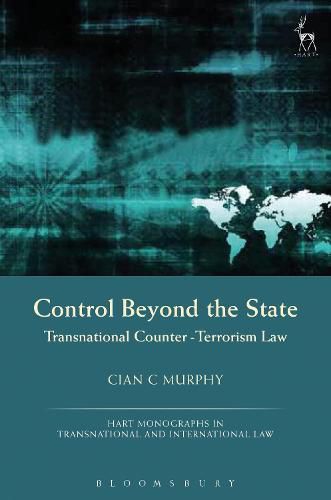Readings Newsletter
Become a Readings Member to make your shopping experience even easier.
Sign in or sign up for free!
You’re not far away from qualifying for FREE standard shipping within Australia
You’ve qualified for FREE standard shipping within Australia
The cart is loading…






This book offers the first critical examination of transitional counter-terrorism law, post 9/11. A key characteristic of governance after 11 September 2001 is the acceleration of existing dynamics of the globalisation of law. In the face of transnational threats to national security states have sought to use global forums for policy development to shape counter-terrorism throughout the world. This book offers the first critical exposition of the dynamics of this transnational counter-terrorism law: global governance, regional government, bi- and multi-lateral agreements, extra-territorialisation, legal diffusions and the rise of private rule-making and enforcement.
The book uses key case studies to reveal how the dynamics of law under globalisation can have a radical effect on constitutional principles such as the rule of law. In doing so it demonstrates how transnational counter-terrorism law can be a potent force for shaping the public sphere at national, supranational, and global levels and asks how, if at all, legal process can serve as a means for resistance to excessive restrictions on political freedom.
$9.00 standard shipping within Australia
FREE standard shipping within Australia for orders over $100.00
Express & International shipping calculated at checkout
This book offers the first critical examination of transitional counter-terrorism law, post 9/11. A key characteristic of governance after 11 September 2001 is the acceleration of existing dynamics of the globalisation of law. In the face of transnational threats to national security states have sought to use global forums for policy development to shape counter-terrorism throughout the world. This book offers the first critical exposition of the dynamics of this transnational counter-terrorism law: global governance, regional government, bi- and multi-lateral agreements, extra-territorialisation, legal diffusions and the rise of private rule-making and enforcement.
The book uses key case studies to reveal how the dynamics of law under globalisation can have a radical effect on constitutional principles such as the rule of law. In doing so it demonstrates how transnational counter-terrorism law can be a potent force for shaping the public sphere at national, supranational, and global levels and asks how, if at all, legal process can serve as a means for resistance to excessive restrictions on political freedom.